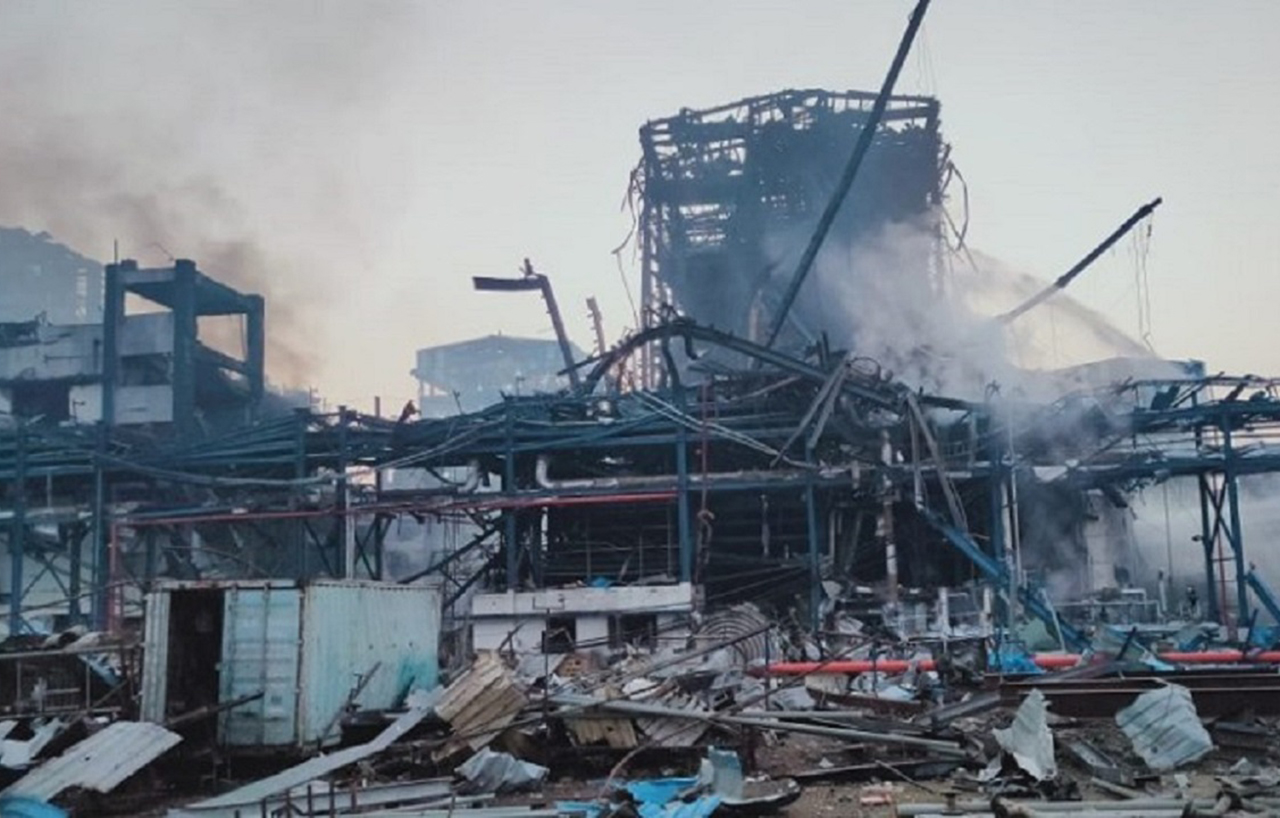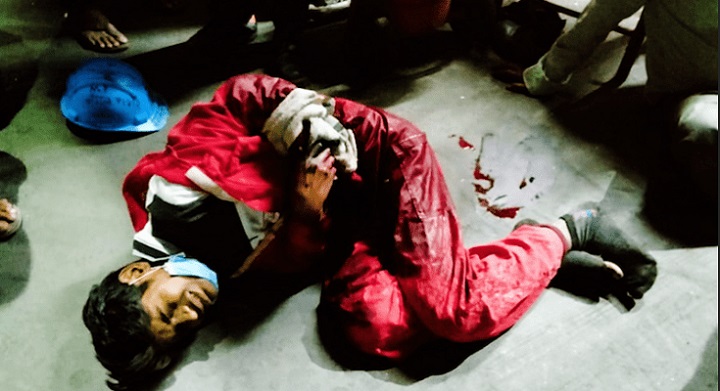#groundxero_news | February 24, 2021
Death of workers in accidents at workplaces doesn’t matter in this country. No candle light marches mourn their death, no rallies and demonstrations in metropolitan cities by renowned activists highlights their precarious working conditions, no twitter storms or social media ‘tool kits’ to express solidarity to them. Their deaths are not ascribed to ‘structural violence’ of the system. The death of workers are not considered as ‘murders’ by the owners of capital, even though most of these accidents happen due to lax in government prescribed safety norms and security regulations in the workplaces, dereliction of inspection duty by corrupt government officials and a criminal nexus between politicians and owners which ensures the owners are seldom held accountable for their criminal negligence.
Yet, since January 2021, in less than two months, more than 40 workers have been killed and many more grievously injured in major industrial accidents which were reported in mainstream media. The latest being the death of seven workers and scorching of 27 others, in a fire followed by a massive blast at a plant of the agro-chemical major United Phosphorus Limited (UPL), at Jhagadia GIDC industrial area in Bharuch district of Gujarat, on 22 February.
The fire at the UPL broke out at around 1.35 am on Tuesday, followed by an “explosion at the plant which was reportedly shut since 5th February 2021 for annual boiler inspection. The plant manufactured chemicals used in the pharmaceutical industry.
According to the company, the accident seems to have occurred due to fire/explosion in the solvent due to an electric short circuit, but it did not rule out a “foul play” either, since the plant was shut. UPL said there was no chemical reaction in progress at this plant and there has been no leak of gas or chemical because of the fire/explosion either during or after the incident. However it didn’t explain as to why so many workers were inside the plant if it indeed was shut with ‘no operation’ going on.
Local sources said it was a boiler blast, and under the impact of the blast, window panes in different houses in the neighbouring villages like Dadheda, Phoolwadi, Kapalsadi, were broken. The blast was so massive that it was heard across a 10-12 km radius at the places including Jhagadia, Panoli and Ankleshwar. The police official did not specify any cause and said a probe was on. The company has also announced an internal enquiry.
The Gujarat Government has issued orders to close the unit and said it will review its safety aspects. It also directed the company to pay ex-gratia compensation of each to the next of kin of the deceased workers. Till date no FIR has been lodged against the company, none from the management held for even interrogation.
Meanwhile, the condition of several injured workers is reportedly critical with many of them in danger of becoming permanently disabled. Most of the workers are migrant, employed as contract-labours by the company. The company said it would offer compensation to the dead and affected workers.
Earlier this month, on 12 February, a blast in a firecracker factory in Achankulam, Virudhunagar, TamilNadu took the lives of 19 workers and left several workers grievously injured. Six workers died while trying to dispose of the gelatin sticks at a stone quarry in Hirenagavalli village of Karnataka’s Chikkaballapur last Tuesday. The incident comes close on the heels of a similar blast at a quarry site in the state Chief Minister B S Yediyurappa’s hometown of Shivamogga on 22 January, which had left eight workers dead.
Such accidents becomes momentary headlines, and that too, only when they result in the loss of several lives and can’t be ignored. The government orders customary probes, promises stern action and announces cash compensation to the deceased family. The matter ends there. The incidents are forgotten very soon, by the government, the trade unions, the media and even the civil society at large.


